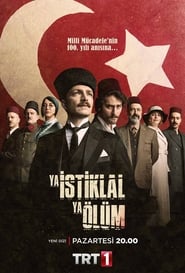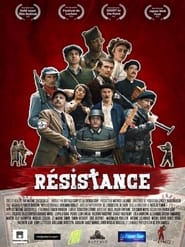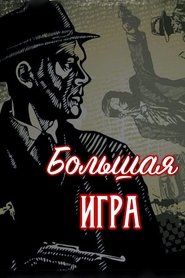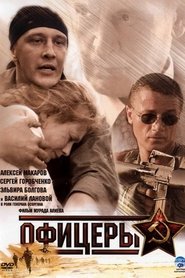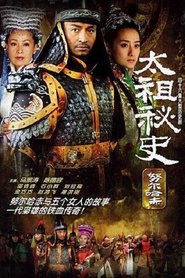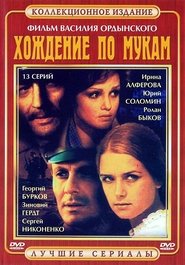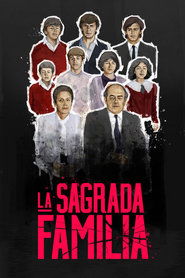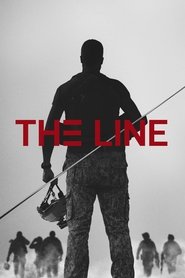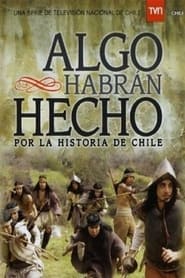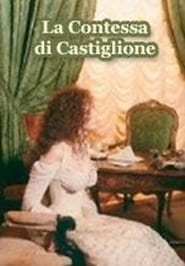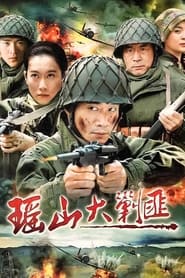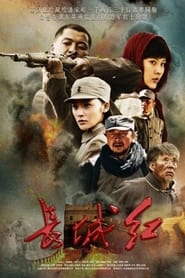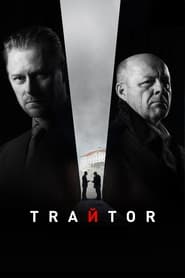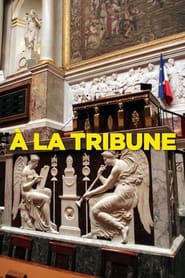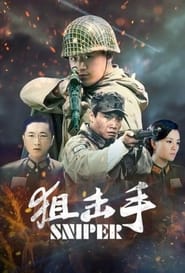Popular War Politics TV Series on Pantaflix - Page 61
-
Fake News
2018
Fake News
2018
star 7Itsuki Shinonome is sent to the internet media department from a major newspaper. Chief Editor Kanji Usami assigns her a story involving green caterpillars being found in instant food. A man who posted about the caterpillars in his instant food on social media appears in front of her. A fight between companies eventually draws in Itsuki Shinonome. -
Geheimkommando Spree
1968
Geheimkommando Spree
1968
-
Either Freedom or Death
2020
star 9On March 16, 1920, after the Allied Powers invaded Istanbul and disbanded Meclis-i Mebûsan, the Kuvayi Milliye movement, led by Mustafa Kemal Pasha, and the opening adventure of the fully independent assembly to be established in Ankara are described. -
Résistance
2021
Résistance
2021
They love France. They will fight the German invaders with everything they've got - but they haven't got a clue how. Meet the FIFIs. -
Press Center
1988
-
Офицеры
2006
-
太祖秘史
2006
太祖秘史
2006
star 6Nurhaci rises from tragedy and betrayal to unite the Jurchen tribes and challenge the Ming dynasty. Guided by five women who soften his heart, he builds a powerful empire but is haunted by personal loss and regret. -
The Road to Calvary
1977
The Road to Calvary
1977
star 3.3St. Petersburg, 1914. Pre-revolutionary bourgeois society, decadent intelligentsia - the signs of this troubled time. The focus is on the Bulavina sisters Dasha and Kata, their personal lives, loves, hobbies, and heartfelt dramas. -
Eerste keus
2024
Eerste keus
2024
-
Escape
1980
Escape
1980
Escape is an American anthology series that aired on the NBC network from February 11 to April 1, 1973. The show was a production of Jack Webb's Mark VII Limited for Universal Television. It aired on Sunday evenings at 10 p.m. Eastern, following the NBC Mystery Movie. -
The Sagrada Familia
2022
The Sagrada Familia
2022
star 5A documentary series that tells the story of the rise and fall of the Pujol family: a story of politics, corruption and the portrait of a Catalonian society who saw in Jordi Pujol, the head of the Catalonian government between 1980 and 2003. -
The Line
2021
The Line
2021
star 7.1In covert modern warfare, the line between right and wrong has blurred. This docuseries examines the moral ambiguities of war as embodied by the 2018 case in which a U.S. Navy SEAL platoon accused its chief, Eddie Gallagher, of war crimes. -
Algo habrán hecho por la historia de Chile
2010
star 10Series that narrates the history of Chile, from the Spanish colonization by Pedro de Valdivia and the begin of the Arauco War, to the Centennial of Chile in 1910. The show uses two main styles, jumping from one to the other. One style is the use of actors to represent certain key events. The second style is the plain explanation of the things taking place, which could be done with visual gags, with the hosts in some modern day location, or at a representation of an event. -
The Countess of Castiglione
2006
Virginia Oldoini, Countess of Castiglione, is an unscrupulous and beautiful woman, in love with Andrea Pieri, a patriot ready to do anything to free Italy from the foreign oppressor. Wounded during a chase, Pieri takes refuge in the castle of Virginia, which, with the approval of her husband, Count Francesco Verasis of Castiglione, takes care of him. Meanwhile, Nigra, in charge of the affairs of the Kingdom of Piedmont in Paris, discovers the relations of the countess with the subversives and sees in her the perfect tool to bring Napoleon closer to the Italian cause. -
瑶山大剿匪
2011
瑶山大剿匪
2011
-
长城红
2015
长城红
2015
-
Traitor
2019
Traitor
2019
star 7In 2004, shortly before Estonia's accession to NATO, the Russian intelligence service is approaching Alfred Vind, an official of the Estonian Ministry of Defense ... -
À la tribune
2020
-
狙击手
2009
 Netflix
Netflix
 Amazon Prime Video
Amazon Prime Video
 Apple iTunes
Apple iTunes
 Apple TV Plus
Apple TV Plus
 Disney Plus
Disney Plus
 Google Play Movies
Google Play Movies
 Paramount Plus
Paramount Plus
 Hulu
Hulu
 HBO Max
HBO Max
 YouTube
YouTube
 fuboTV
fuboTV
 Peacock
Peacock
 Peacock Premium
Peacock Premium
 Amazon Video
Amazon Video
 The Roku Channel
The Roku Channel
 AMC+
AMC+
 Kocowa
Kocowa
 Hoopla
Hoopla
 The CW
The CW
 Vudu
Vudu
 Starz
Starz
 Showtime
Showtime
 PBS
PBS
 Pantaflix
Pantaflix
 FXNow
FXNow
 Tubi TV
Tubi TV
 Kanopy
Kanopy
 Comedy Central
Comedy Central
 Crunchyroll
Crunchyroll
 Microsoft Store
Microsoft Store
 Redbox
Redbox
 Sun Nxt
Sun Nxt
 ABC
ABC
 DIRECTV
DIRECTV
 Crackle
Crackle
 Fandor
Fandor
 Plex
Plex


